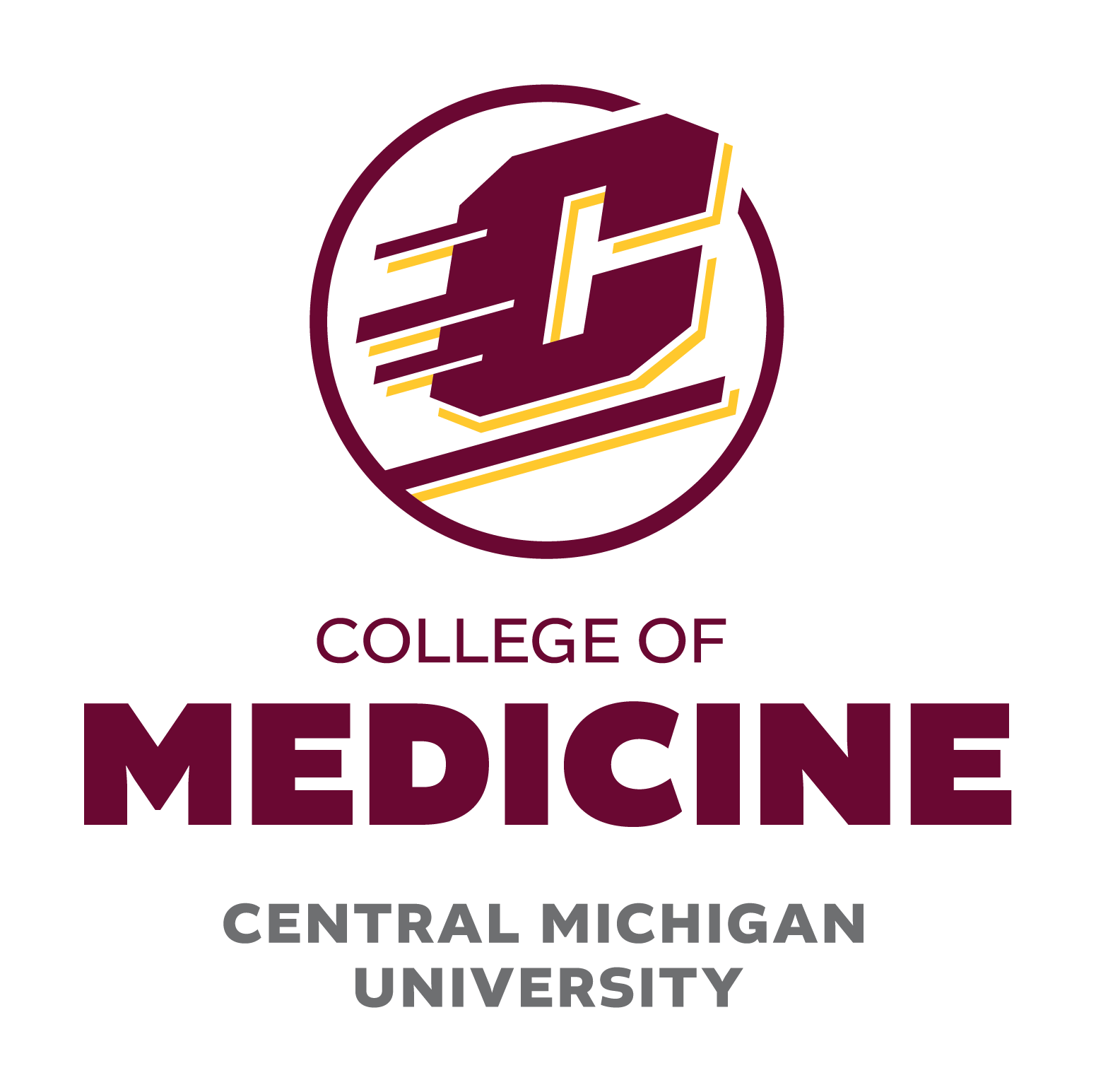Neurology Resources
Physician Resources | University Pediatricians | Michigan
Contents: Introduction, Purpose & ADHD Diagnostic Criteria • ADHD Talking Points • IEP Letters • Neuropsychology Referrals
Introduction
Attention deficit/hyperactivity disorder (ADD/ADHD) is wholly part of the range of beautiful human neurodiversity. However, due to the demands of our educational system and social constructs, it has many developmental implications for a patient. It can cause a person to be unable to pay sufficient attention for learning at expected levels, have less regulation of emotions, difficulty coordinating executive functions, as well as have a hyperactive nature, as if driven by a motor. Such a condition does put a child at increased risk of anxiety and depression but can often, when well regulated, help catapult their life to many extraordinary successes as well.
The proper care of ADHD takes a multifaceted and stepwise approach in diagnosis and management. Such patients usually need school interventions such as IEP/504 plans, psychology, and at times neuropsychology and psychiatry. This care is best carried out under the auspices of a PCP for several reasons:
- The PCP knows the patient and the family long-term and knows the psychosocial conditions best.
- The PCP can see the patient more often and monitor closely, with every intervention and/or medication change.
Purpose of these additional resources
We in the
neurology department at CHM understand the need to support our community pediatrician partners in providing the best care for children in our community with ADHD. Resources and successful approaches we have gathered are shared here. Additional resources will continue to be compiled and shared on this website for the purpose of enabling the best care and allocation of resources for our shared pediatric community.
For patients with other neurologic and developmental disorders, which may require advanced imaging and management, we aim to make ourselves more accessible while continuing to provide the best of care!!
Diagnostic Criteria for ADHD
Healthcare providers across the board use the guidelines in the American Psychiatric Association's Diagnostic and Statistical Manual, Fifth edition (DSM-5),2 to help diagnose ADHD.
Other Resources for Easy Reference
A) National Institute for Children's Health Quality (NICHQ) Vanderbilt Scales for use in Diagnosis
https://nichq.org/sites/default/files/resource-file/NICHQ-Vanderbilt-Assessment-Scales.pdf
B) AAP Clinical Practice Guidelines for ADHD
References:
- American Psychiatric Association: Diagnostic and Statistical Manual of Mental Disorders, 5th edition, text revision. Washington DC: American Psychiatric Association, 2022. https://doi.org/10.1176/appi.books.9780890425787
ADHD Talking Points
I. Talking points of ADHD that parents typically want to know about regarding medications:
A. Methylphenidate and amphetamine are the two categories of stimulant medications with multiple FDA-approved options.
- How do they work differently? Methylphenidate inhibits reuptake of dopamine on the neuron’s surface and amphetamine goes into the nerve terminal and causes its release.1 Thus, amphetamine can give a larger surge of brain neurotransmitters but may have more side effects in some.
- Which one works better? Which one should we start with? In 43% either one works, in 41% only one option works, and in 16%—neither worked 2. Methylphenidate is generally recommended for starting in kids and Amphetamine in adults.
- What are the side effects of stimulants? Loss of appetite and trouble sleeping. Other less frequent ADHD medicine side effects include jitteriness, irritability, moodiness, headaches, stomachaches, fast heart rate, and high blood pressure
- How can side effects be minimized? Start with a low, subtherapeutic dose & administer with last bites of breakfast at home. Increase the dose if needed after 2-4 weeks, after a report from parent that the patient is tolerating but further effect is needed.
- Why start with a stimulant (recommended)? It is far more effective than a non-stimulant such as Strattera or Intuniv for improving attention in ADHD, although these can be effective in some who do not tolerate stimulants.
B. Using a Combination of medications for ADHD.
- Why would my doctor recommend to use Guanfacine in addition to a stimulant? Guanfacine can calm behavioral problems like irritability, impulsiveness, and excessive hyperactivity so that stimulants are better tolerated. It might also allow use of a lower dose of the stimulant.
C. Anxiety along with ADHD.
- Can children with anxiety along with ADHD tolerate stimulants? Some children may be calmed with use of guanfacine first before starting stimulants. Others may need medication management of anxiety first with psychoactive medications.
D. Long-term use of stimulants.
- Will my child get addicted to stimulants? Studies show that those with ADHD who are treated with stimulants get addicted to substances far less than the general population. It is primarily those who do not have ADHD that abuse these medications.3
- Will it help mental health? Use of stimulants may be protective against secondary problems like anxiety and depression that people with ADHD are at higher risk of.
II. Talking points about ADHD besides medication:
A. Analogies & Info to help understand ADHD.
- Your child has a “Ferrari engine with bicycle brakes.3 Their laser beams need to be focused together.” The child is part of the spectrum of cognitive diversity and there is nothing wrong with them as they have many strengths and talents (people skills and entrepreneurial mindset).
- Prevalence of 5-10% of population and a heritable component as 1 parent affected gives rise to a 1 in 3 chance and 2 affected parents predicts a 2 in 3 chance of an affected offspring.
B. Other reasons for my kid’s inattention and lack of motivation.
- What if my kids is just lazy and does not want to do the work? That may be the case, but ADHD does affect neurotransmitters (dopamine and norepinephrine) that affect motivation, arousal, focus, and executive function/planning. So look carefully before you disregard the possibility of ADHD.
C. PILLARS OF CARE WHEN CONSIDERING ADHD. Ways to help your child calm down and settle into their school/home routine when they may have ADHD.
- School IEP (Individualized Educational Plan) testing to help them catch up and 504 Accommodations specifically for ADHD and/or learning or physical disability.
- Vigorous exercise, nearly daily, creating natural dopamine and Norepinephrine that may otherwise be lacking.
- Psychology referral (i.e. counseling and coaching): a) which at young age will be geared toward giving parent more tools for setting up structure and creating best learning environment. b) helps address any underlying anxiety, especially surrounding learning. Also address any ACE’s (adverse childhood events) that can negatively contribute to learning.
- Stimulant and/or nonstimulant medication when not succeeding with other interventions above.
D. So we tried everything else and school IEP/504 accommodations are not helping. My kid still cannot focus in school and is not succeeding. How do we get him/her tested for ADHD or other learning issue?
We usually use:
Vanderbilt screening tools (ages 6-12)—see link below:
https://nichq.org/sites/default/files/resource-file/NICHQ-Vanderbilt-Assessment-Scales.pdf
Neuropsychology testing if:
- There is suspicion of additional learning disability (ex. dyslexia)
- Psychosocial factors are making diagnosis difficult especially in kids with anxiety, social issues contributing (especially older kids)
- School testing is in disagreement with parent and PCP findings
III. Is there a role for Neurology in ADHD?
A. When there is a neurologic concern such as:
- Worsening cognition, speech or motor skills
- Seizures
- Headaches
- Potential sleep disorder
B. How to have prompt access to Childrens Hospital of Michigan-Neurology :

For non-urgent appointments, please scan the QR code, provide the requested contact information and submit the appointment request (this entire process will take only a moment).
- When completing the information, be certain to provide our staff with your cell phone or another number where you can be reached.
- You will be asked to select a specialty. Please select “Neurology”.
- As guided by your physician, you may request a specific doctor or enter “no preference.”
Our appointment request staff are in the office during normal business hours (8a-4p M-F). Most requests received during these hours will be returned the same day. Outside of these hours, you should receive a call back in the next 1-2 business days.
References:
- Aiken MD, Aiken. Amphetamine vs. Methylphenidate. Carlat Publishing. 5 Oct 2022. Webinar.
- Arnold, L. E. (2000). Methyiphenidate vs. amphetamine: Comparative review. Journal of Attention Disorders, 3(4), 200-211. https://doi.org/10.1177/108705470000300403
- Hallowell, E & Ratey, J. (2021). ADHD 2.0: New science and essential strategies for thriving with distraction—from childhood through adulthood, 118-119.
IEP Letters
Utilize the following IEP letter templates for requesting School IEP (Individualized Educational Plan).
Generic IEP Letter (Not achieving in school):
Download Word File (.docx)Date:
To Whom It May Concern,
Name: _______________________ DOB _____________, was seen for evaluation. Based on history and findings today, I am requesting an IEP (Individualized Educational Plan) for this patient, as in my medical opinion, there are factors that appear to be interfering with he/she achieving their maximum potential in school.
Ultimately – depending upon findings of relevant evaluations as part of the IEP – the child will be provided any/all relevant supports/services (speech, OT, PT, specialized academic setting and/or resource room services, social work/psychology services, etc…) to address identified concerns, and also appropriate accommodations as determined by her ITEAM –
see below), that will allow he/she to be able to achieve to their maximum potential in school.
Thank you for your cooperation in this matter. If you have further questions or concerns,
please contact us at _______. .
Sincerely,
_________________________________________________________________________
IEP Letter for ADHD w/Speech and Occupational Therapy:
Download Word File (.docx)Date:
To Whom It May Concern,
_________ was seen for evaluation. Please provide full and expedited IEP (Individualized Educational Plan) evaluation for this patient, as in my sincere medical opinion, an underlying learning disability exists. This evaluation and plan should include speech and occupational therapy as there are significant delays in these areas of development as well.
Additionally, please institute 504 accommodations in the meantime for an attentional disorder/ADD to include the services listed below:
- Preferential seating to minimize distractions
- Extended time on tests and assignments
- Testing/quizzes in different, quiet setting with few distractions
- Reduced homework or classwork
- Verbal, visual, or technology aids
- Modified textbooks or audio-video materials
- Behavior management support
- Adjusted class schedules or grading
- Work alternates short concentrated periods with breaks
- Repetition of oral instructions,
- Homework routine and checking work daily
- Study skills instruction
Additionally, this patient has emotional impairments and moreover a behavioral disorder. Please include in the educational accommodations, a behavioral management plan specifically formulated for this child.
Thank you for your cooperation in this matter. If you have further questions or concerns, please contact us at _______.
Sincerely,
__________________________________________________________________________
IEP Letter for Dyslexia:
Download Word File (.docx)Date:
To Whom It May Concern,
________ DOB ___, was seen for evaluation. Please provide full and expedited IEP (Individualized Educational Plan) evaluation for this patient, as in my sincere medical opinion, an underlying learning disability, namely dyslexia exists.
Additionally, please institute 504 accommodations in the meantime for an attentional disorder/ADD to include the services listed below:
- Preferential seating to minimize distractions
- Extended time on tests and assignments
- Testing/quizzes in different, quiet setting with few distractions
- Reduced homework or classwork
- Verbal, visual, or technology aids
- Modified textbooks or audio-video materials
- Behavior management support
- Adjusted class schedules or grading
- Work alternates short concentrated periods with breaks
- Repetition of oral instructions,
- Homework routine and checking work daily
- Study skills instruction
- Please read tests and quizzes read to student
- Use of graphic organizers for writing
- Wordbanks and sentence stems for writing
Thank you for your cooperation in this matter. If you have further questions or concerns, please contact us at 313-745-kids.
Sincerely,
____________________________________________________________________________
Neuropsychology Referrals
Michael E. Behen, PhD
Psychologist, PhD, LP
The Imagine Center for Psychological Health
4160 Woodward Avenue
2nd Floor
Detroit, Michigan, 48201
Phone: (313) 656-4052
Fax: (313) 656-4053
https://www.psychologytoday.com/us/therapists/michael-e-behen-phd-detroit-mi/100777



